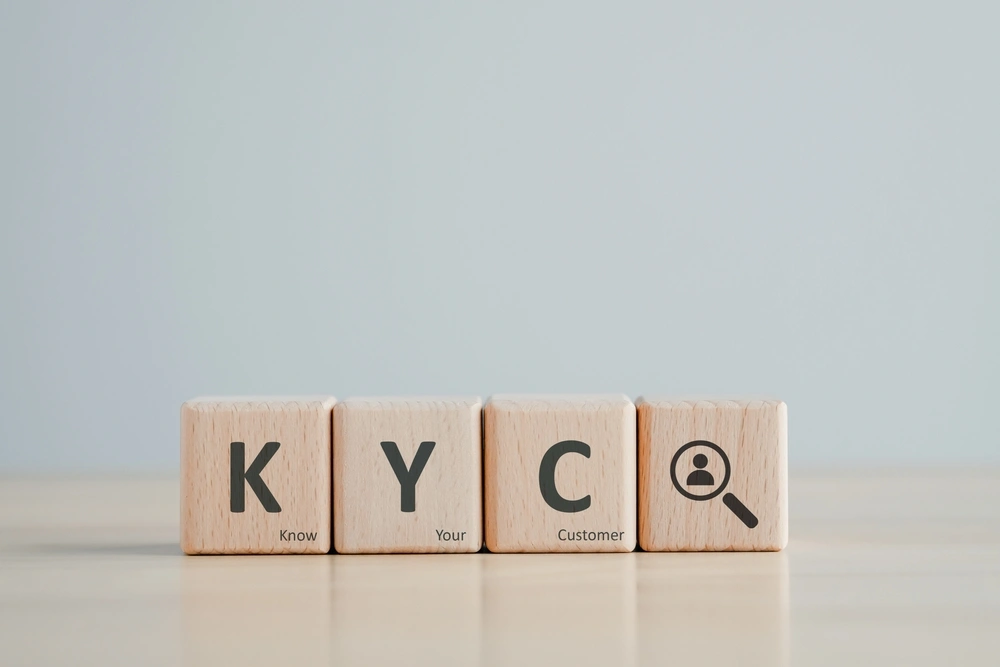|crypto, knowledgehub
Why Are KYC and AML Important for the Crypto Industry?

As the popularity of cryptocurrencies continues to surge, so too does the need for prudent regulations to promote integrity and transparency, such as Know Your Customer (KYC) and Anti-Money Laundering (AML).
KYC and AML protocols play a vital role in upholding the legitimacy of digital asset markets while curbing illicit activity.
While KYC refers to the process of verifying a customer's identity, AML involves the protocols designed to prevent money laundering. Cryptocurrencies that implement robust AML or KYC practices aim to foster trust and participation among all parties.
In this article, we'll explore why KYC and AML compliance have become increasingly important for the cryptocurrency space and learn the benefits of each for security. Let’s start!
What does AML in crypto mean? How does crypto AML work?
In the cryptocurrency context, AML typically relates to protocols that flag suspicious transactions and screen for potential connections to criminal activity.
As with traditional finance, crypto AML often involves the use of blockchain analytics software to tag and track cryptocurrency movements. This includes tracking funds to examine the paths of transactions over time, as well as analyzing on-chain behavioral metadata.
Exchanges that implement thorough AML programs can monitor on-chain transactions for signs of money laundering techniques like mixing, tumbling, or other obfuscation methods. With this technology, exchanges can identify higher-risk flows and, in some cases, freeze accounts under investigation.
What are the benefits and importance of AML?
AML policies yield several benefits beyond simply deterring money laundering. They enhance overall market integrity by discouraging participation from bad actors aiming to conceal ill-gotten gains.
With less dirty money in circulation, the sector garners greater trust among rule-abiding investors, traders, and regulators. Robust AML is crucial within cryptocurrency markets for several core reasons:
- Deter criminals and bad actors from using digital assets to launder money or finance illicit ends like terrorism, which can harm communities.
- Protect innocent traders and investors from the dangers of interacting directly or indirectly with tainted funds on crypto exchanges and transactions.
- Strengthen the overall integrity and oversight of flows to prevent crypto networks from being used as a conduit for large-scale financial crime.
If proper controls are not implemented, the growing use of cryptocurrencies could allow for illegal funding flows. AML establishes a responsibility that protects consumers and upholds the integrity of the regulated financial systems cryptocurrencies increasingly interact with.
The implementation of the Crypto Travel Rule and Anti-Money Laundering (AML) regulations
Compliance with the crypto travel rule by FATF, which requires transmitting relevant customer and transaction information for cross-border wire transfers, is also vital from an AML perspective.
As global regulators push for its implementation within cryptocurrency, services like those offered by Cryptobunq, which support the travel rule, help legitimize digital assets as regulated crypto payment rails.
Cryptobunq is a crypto service provider that offers numerous crypto and blockchain solutions, from crypto checkout and invoicing to crypto exchange API and batch crypto payments to custody and wallet. By integrating CBQ services into your business, you can experience maximum security in blockchain.
What does KYC in crypto mean? How does crypto KYC work?
KYC generally refers to customer identification protocols. In the cryptocurrency sphere, exchanges and other services requiring KYC must establish the true identities of their users.
This often entails collecting documents like government-issued photo IDs, social security numbers, and, in some jurisdictions, proof of address and income sources.
The typical crypto KYC process for cryptocurrency platforms involves users uploading copies of identification papers along with a selfie comparison photo.
Automated identity verification solutions then compare these images against government document databases and facial recognition systems. Some services may also request additional details to thoroughly build customer profiles.
What are the benefits and purposes of KYC?
In addition to promoting mandatory account transparency, conscientious KYC has several auxiliary benefits for both industry and society:
- It deters illegal access to and use of regulated crypto services, enhancing protections for law-abiding participants.
- Exchanges are provided with robust audit trails to efficiently identify account takeovers or thefts and prevent subsequent laundering of ill-gotten funds.
- Signals adherence to global anti-financial crime standards, which galvanizes ongoing institutional participation and investment.
What is the purpose of KYC? Why is KYC important in cryptocurrency?
As an equally vital counterpart to AML, KYC strengthens overall integrity by aligning industry actors' incentives with rule-abiding behavior. Knowing and verifying customers' identities is the lynchpin of any strong AML program.
Without reliable records of who is transacting, it becomes much harder to monitor for improper activity, let alone cooperate with law enforcement. Therefore, KYC builds accountability into cryptocurrency networks, an important factor as they establish themselves among traditional financial services.
Given cryptocurrencies' potential for global reach, pseudonymous transactions, and large market volumes, robust KYC also helps ensure these networks cannot be misused to facilitate illicit finance in practice.
The implementation of the Crypto Travel Rule and Know Your Customer (KYC) regulations
To fully comply with the crypto travel rule, KYC data must be properly associated with transfers. This allows originator and beneficiary information to travel with the funds, enabling compliance when multiple entities are involved in a payment route.
Therefore, cryptocurrency projects establishing interoperability between crypto wallets and exchanges therefore require synchronized, standardized KYC practices.
AML and KYC compliance for crypto exchanges and wallets
As cryptocurrency adoption increases worldwide, so too do regulatory obligations on the entities facilitating transactions. Research found that 57% of approved virtual asset service providers still had weak AML measures.
Implementing mandatory KYC/AML compliance for crypto exchanges and wallets helps build institutional trust while protecting user privacy when done responsibly and efficiently.
Cryptobunq empowers projects to automate complex rules-based screening, monitoring, and reporting—critical capabilities as regulations evolve globally in this aspect. You can check out our case studies to learn more about our services and expertise.
The current state and future of crypto regulations
While cryptocurrency regulation remains fragmented internationally, coordination efforts have accelerated tremendously in recent years. Anti-Money Laundering (AML), Know Your Customer (KYC), and fraud prevention all saw big changes in the financial services business in January 2024.
In order to stay ahead of advanced financial crimes and meet regulatory requirements, the industry is moving away from standard compliance checklists and toward a more proactive approach to risk assessment.
Perpetual KYC has become a best practice because it lets you keep an eye on customer records all the time. For perpetual KYC to work, you need to use advanced tools and automate processes.
It looks like this year will be very different. Institutions will use new technologies and strategic relationships to improve compliance, operational efficiency, and the safety of the financial ecosystem.
The bottom line
KYC and AML compliance will remain foundations for building a trusted crypto industry and safeguarding participants on a large scale.
As an increasing number of retail and institutional investors see the promise of digital assets, protective measures bolstering transparency and oversight grow ever more paramount.
Embrace proactive regulatory cooperation, indicating the industry's maturity, and augur well for cryptocurrency achieving its vast, lawful potential through responsible stewardship and standardized best practices globally with Cryptobunq. Contact us today for maximum security and expertise!













